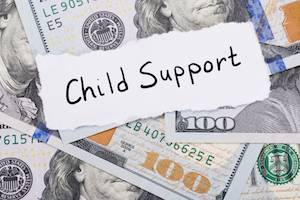Preparing for the Tax-Related Consequences of Divorce
 Just as the legal formalization of a marriage has tax-related consequences, so does its dissolution. If you have recently divorced or are in the process of divorce, it is important that you understand and prepare for the tax-related consequences of the decisions made regarding spousal support, the allocation of parental responsibility, and the division of the marriage’s assets. In the interest of avoiding serious financial hardships, it is imperative that these issues are dealt with as early as possible.
Just as the legal formalization of a marriage has tax-related consequences, so does its dissolution. If you have recently divorced or are in the process of divorce, it is important that you understand and prepare for the tax-related consequences of the decisions made regarding spousal support, the allocation of parental responsibility, and the division of the marriage’s assets. In the interest of avoiding serious financial hardships, it is imperative that these issues are dealt with as early as possible.
Child Support and Spousal Support Are Primary Tax-Related Issues Following Divorce
Currently, child support payments and spousal support payments are taxed differently. Spousal support (sometimes termed “maintenance” or “alimony”) is tax-deductible for the payor and is classified as taxable income for the recipient, while child support is not tax-deductible for the paying parent or taxable for the receiving parent. In some cases, it possible for divorced spouses to reach what is termed an “unallocated support arrangement” in which child support and spousal support are not differentiated into separated payments. Rather, they are combined into one fully tax-deductible/taxable payment – a beneficial simplification in instances, for example, in which one spouse earns the bulk of the income and the other spouse has …
Obtaining a Child Support Order Modification in Illinois
 While child support payments become stable and predictable when parents’ employment circumstances remain constant over time, instability and stress can ensue when there is an unexpected decrease in income. This is true for both the parent paying child support and, when payments fall short or cease altogether, for the parent and child receiving support. When people’s circumstances change, Illinois law allows parents to request a modification of a child support order to increase or decrease the amount of child support payments.
While child support payments become stable and predictable when parents’ employment circumstances remain constant over time, instability and stress can ensue when there is an unexpected decrease in income. This is true for both the parent paying child support and, when payments fall short or cease altogether, for the parent and child receiving support. When people’s circumstances change, Illinois law allows parents to request a modification of a child support order to increase or decrease the amount of child support payments.
Either Parent Can Request Child Support Modification
Life happens. On the positive side, there are promotions and pay increases. On the negative side, there are layoffs, demotions, pay decreases, and job termination. Whether positive or negative, a meaningful change in the income source of child support payments bears on the support itself. When a paying parent’s income increases or decreases significantly, either parent may petition the court to modify child support payments accordingly.
Importantly, child support payments cannot be modified informally, out of court. Only a judge is capable of entering a binding modification, and these modifications must be based on the supporting parent’s ability to make their required payments. This bright-line reality may be maddening for a child …






